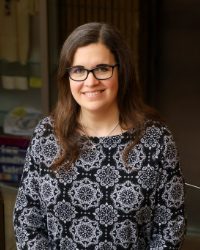What the Librarians are Reading
This article is from the spring 2025 issue of Hearsay, the semi-annual newsletter of the Wheat Law Library.

I have just started reading “Deliver Me from Nowhere: The Making of Bruce Springsteen’s ‘Nebraska’” by Warren Zanes. The book was a birthday gift from my brother this year. One of my favorite memories is going to a Springsteen concert with my brother in Kansas City. I have often described that show as “three hours of mind-blowing awesomeness.” Zanes’ book describes the circumstances that led Springsteen to make the 1982 album that’s often referred to as “dark” and “surprising.” Springsteen recorded the songs alone, the title track is about Charles Starkweather’s 1958 killing spree, and the artist isn’t even pictured on the album cover. Zanes interviews those involved with the making of Nebraska as well as musicians who were influenced by it. He also lists resources that inspired Springsteen while he made the album, like the 1973 film Badlands and the works of author Flannery O’Connor.
Blake Wilson is reading “How to Do Nothing: Resisting the Attention Economy” by Jenny Odell. He chose the book — the author’s first — because he is trying to be “more purposeful with how I spend my time.” Blake likes the book because Odell doesn’t take an anti-technology viewpoint but provides a plan to help people achieve balance. Blake believes that the book is a must-read and went on to say, “I would encourage everyone to explore their relationship with technology. How do you balance staying connected and informed with being present in your life?”
Trenton Keim is perusing an impressive five books on a variety of topics. The first is “Extinction Events: Stories” by Liz Breazeale. Calling Breazeale an “amazing and talented writer,” Trenton chose it because it made him consider the fragility of life. The second book is “Lies Sleeping” by Ben Aaronovitch. The novel is a part of the “Rivers of London” series that follows a constable and apprentice wizard as he solves crimes. Calling it a “fun read” Trenton is interested in the author’s theories about magic. The third book is “Private Government: How Employers Rule our Lives (and Why We Don’t Talk about It)” by Elizabeth Anderson. Trenton said he’s reading it because of its subject matter — the rights of workers and “profits over people” in business. Trenton is also looking at “Queer as Folklore: The Hidden Queer History of Myths and Monsters.” The author, Sacha Coward, designs escape rooms for museums. Trenton chose the book for its discussion of history, folklore and literary criticism. Also, he thought the cover was cool. The final book Trenton is reading is “Revealing the Universal in the Specific in A Different World: An Interpretive Approach to a Television Depiction of African-American Culture and Communication Patterns” by Venita Ann Kelley. A Different World is one of Trenton’s favorite shows, which is why this 1995 dissertation by KU alum Kelley caught his eye. “I’m really enjoying learning more about the use and analysis of language through a lens I’m not familiar with.”
Didem Blum is reading “The Midnight Library” by Matt Haig. She commented that this book has been recommended to her more than once since she started her library job. The books in the “Midnight Library” of the title represent alternate universes. When the main character picks a book, she is transported into her “self” from that universe to see how her life may have changed if she had made different choices. Didem mentioned that she enjoys books where characters get to live several lives, creating a story within a story. She also appreciated that the main character is guided by a librarian, and liked that librarians are compared to “soul-enhanced search engines.” Referring to the book as an “augmented stocktaking exercise,” Didem has liked what she’s read so far and is interested in the story’s ultimate outcome.
Neal Axton is reading “The Disordered Cosmos: A Journey into Dark Matter, Spacetime, and Dreams Deferred” by Chanda Prescod-Weinstein. Neal decided to pick up the book after attending the author’s presentation at the Hall Center for the Humanities. While this work starts with sub-atomic particles, it expands to include the role of dark matter in the creation of the Universe and the movement of galaxies. Returning to life on Earth, the book illustrates how hierarchies and cultural blinders can limit the ability of scientists to shift paradigms — to accept novel information. Challenging topics like quantum mechanics and cosmology are made more accessible with allusions to works as disparate as Moby Dick, Star Trek and hip-hop culture.
Contact the Library
Circulation Desk
785-864-3026
Reference Questions
lawref@ku.edu
785-864-3025